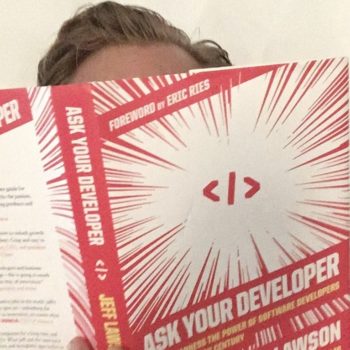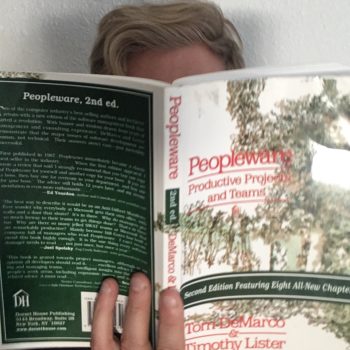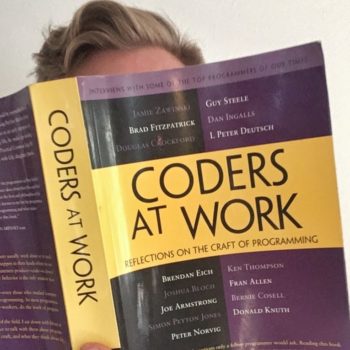
Ask Your Developer
How to Harness the Power of Software Developers and Win in the 21st Century
Categories:
Favorite,
CTO,
Engineering Manager,
Tech Lead,
Product Manager,
Startup Founder
How strongly do I recommend Ask Your Developer?
9 / 10
Review of Ask Your Developer
Ask Your Developer is perfect for people who want to read 1-2 books per year about software. Written by the founder and CEO of Twilio, this book is conversational and will plant a few ideas in your mind at both strategic and tactical levels.
Top Ideas in This Book
- You should build any software that differentiates you from competitors
- World class companies operate on a much higher level in scale, talent acquisition and development, and standards of performance
- Experimentation is the prerequisite for innovation and great infrastructure enables experimentation
- Coding requires high creativity and resembles art or music more than math
- The essence of autonomy is trust to make decisions
- To learn about the environment at a software company, ask what happened after the last system outage
- Foster loyalties and culture around stream-aligned teams, not functional units like engineering or design
- The biggest risk for growing companies is becoming inward facing
- To assess whether a company is inward or outward facing, ask people what customer problem they are working on
You should build any software that differentiates you from competitors
Jeff Bezos realized early that Amazon was a software company not a retail company. Amazon’s ability to develop custom distribution software differentiated them from competitors using generic systems.
World class companies operate on a much higher level in scale, talent acquisition and development, and standards of performance
Businesses need employees to be their best. Written differently, businesses need to cultivate systems and environments that enable employees to be their best, to reach their full potential.
The authors of Peopleware describe a similar situation, in which the highest performing teams obsess about being the best and pursue that vision relentlessly.
Experimentation is the prerequisite for innovation and great infrastructure enables experimentation
You can’t just tell people to experiment in hopes of driving innovation. You must invest time and money into infrastructure to decrease the marginal cost of experimentation, which opens the door for innovation.
Coding requires high creativity and resembles art or music more than math
Nearly everyone in Coders at Work said math isn’t that important and here the founder of Twilio repeated that message, saying that programming is more like art and music than math.
This is one point I think recruiters, product managers, and designers misunderstand about developers. They think most software engineers are analytical, organized, and introverted. They have formed a persona that doesn’t match reality. Most developers love creative expression including visual art and design.
When you appreciate the creativity required to build software, you connect more deeply with the humans building it and create the opportunity for great products.
The essence of autonomy is trust to make decisions
Autonomy, mastery, and purpose motivate people. To achieve autonomy you must have the ability to make decisions. The only autonomy that matters is the ability to do something differently than your boss would.
To learn about the environment at a software company, ask what happened after the last system outage
When the system went down last, how did individuals in the organization react? Was there panic, fear, blaming, resentment, isolation? You will probably need to dig further than surface level answers as many teams will say they do blameless post-mortems but on a deeper level you find trust issues cross-functionally or even within the team.
Foster loyalties and culture around stream-aligned teams, not functional units like engineering or design
Many organizations employ stream-aligned teams but pride still comes down to membership in a functional group like engineering. While you do want to cultivate a culture of engineering, each engineer’s first team should be the stream-aligned team they belong to.
The biggest risk for growing companies is becoming inward facing
Growing companies (or “well established” companies) can get process-happy, believing that growing up means imposing a lot of constraints to reduce risk of deviation. Beware companies where internal considerations like consistency, turf wars, and control outweigh external considerations like time to market and product strategy.
To assess whether a company is inward or outward facing, ask people what customer problem they are working on
Customers can be internal or external, but everybody should be working on a customer problem and understand who the customer is.
As a hiring manager that interviews software engineers, too many candidates talk about what they’ve built but fail to demonstrate an understanding of why they’re building that functionality or who the customer is.


